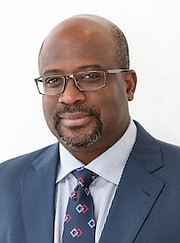By NEIL HARTNELL
Tribune Business Editor
nhartnell@tribunemedia.net
Bahamas First’s top executive yesterday said it has made solid progress in recovering the $5m fall-off in motor premiums suffered in 2020, but added: “We don’t want to count our chickens before they hatch.”
Patrick Ward, the property and casualty underwriter’s president and chief executive, told Tribune Business that it was “close” to seeing vehicle insurance premiums returning to pre-COVID levels as tourism rebounded and the economy opened up.
He spoke out after Bahamas First’s just-released annual report revealed that 2020 motor insurance premiums suffered the greatest top-line impact of any business category it insures during the pandemic’s peak.
“Based on trends prior to the last two weeks of March 2020, we were expecting to see a continuation in the growth in the motor class of business in both jurisdictions all the way through 2020,” Bahamas First said, in a reference to its territories of The Bahamas and the Cayman Islands.
“However, in The Bahamas, particularly, the motor account experienced the most significant business development impact. Gross premiums in this location fell off by almost $5m as a result of a number of factors, including extended lockdowns and reduced vehicle sales during the year.
“These factors and the other contributing components appear to be temporary in nature, and our current post-2020 experience shows that this business line is likely to recover very strongly,” the company added.
“In Cayman, the rate of premium growth was marginal, with a stronger finish to the year in the third and fourth quarter. Gross written premiums for 2020 finished at $35m overall, compared to just under $40m in 2019.”
Mr Ward told Tribune Business of motor vehicle premiums yesterday: “We’re starting to seed that rebound back to levels that are pre the pandemic. It’s not 100 percent there yet, but it’s definitely showing a trend towards that.
“It’s a month-to-month thing. It’s a bit premature for us to make a determination on that [full recovery] because there’s a number of things that can happen. I would say we’re getting close, but we don’t want to count our chickens before they hatch.”
The Bahamas First chief provided further explanations for last year’s $5m fall-off, also attributing it to the Government’s relaxation of vehicle licensing and registration stipulations during COVID-19 lockdowns. That encouraged some motorists to hold-off on renewing their vehicle insurance, while affordability issues among those who were terminated or furloughed was another factor.
“There were also some commercial fleets not in use, taxis not being driven because there was no business, and it made no sense to renew insurance policies until the vehicles came back into use,” Mr Ward said.
“As the economy rebounds, and improves with restrictions being relaxed and coming back to a normal pace of life, we’re definitely seeing a return on the motor side.”





Comments
TalRussell 4 years, 7 months ago
Striving achievable healthy environment and a healthy economy, could've done had objective firmly in place to take we's Commonwealth of 1200 Out Islands, Cays, and Rocks - one-hundred percent Free from Vehicle engine sludge by the year 2031.
Comrades, if there be just the one takeaway lesson thing we witnessed and experienced from COVID, was that we needed not to be so much dependent upon vehicles, yes?
Sign in to comment
OpenID